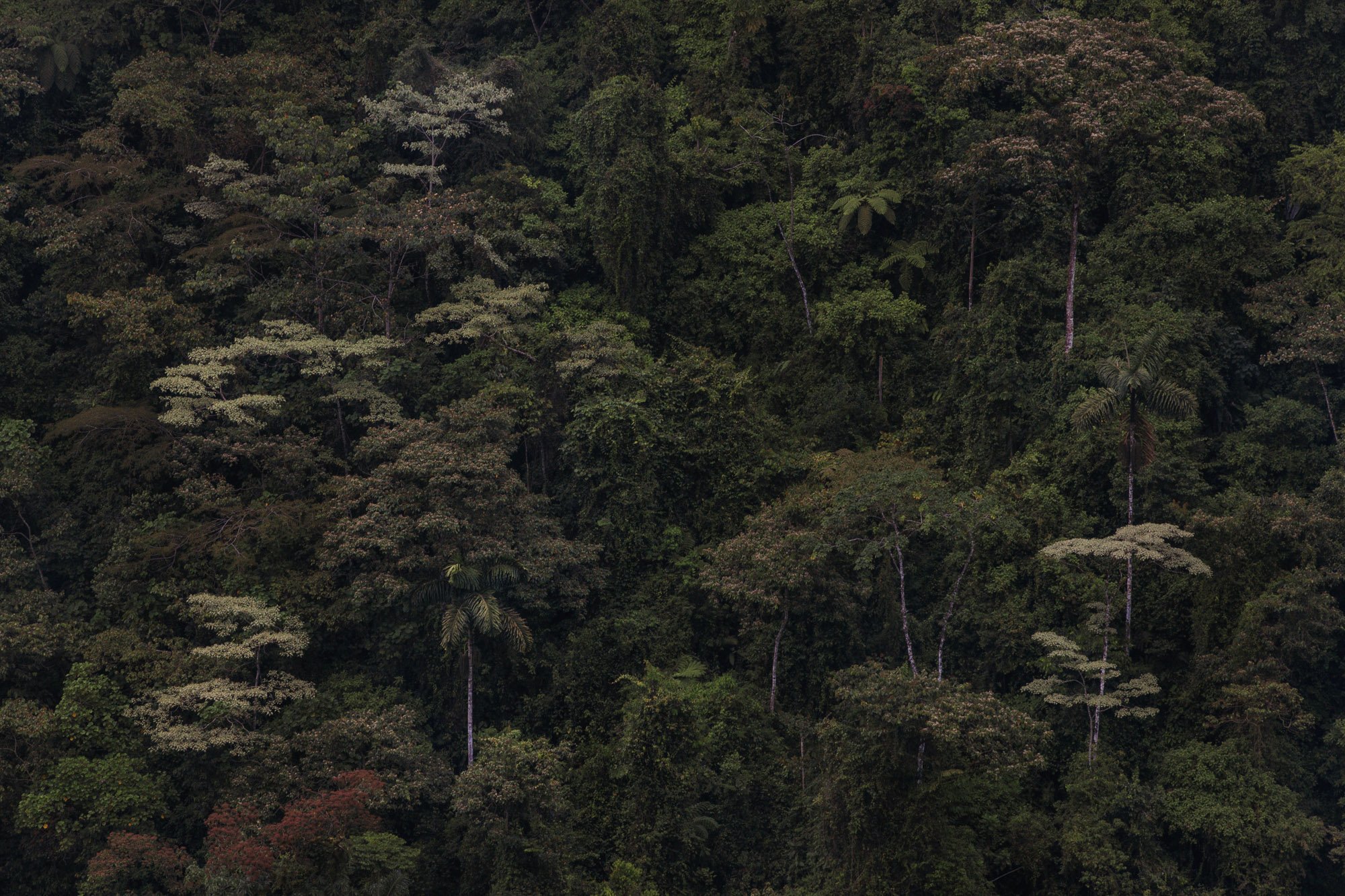Matías Sauter Morera
After relocating to Berlin in 2012, photographer, Matías Sauter Morera, became acutely aware of the significance that tropical nature held within his understanding of his Costa Rican identity. His lush, psychologically charged photographs depicting infinite spans of untamed jungle, signify a return to the landscape of his childhood and a reexamination of memories formed there. “I seek to propose an identity rooted in the perpetual presence of tropical nature in our lives and its impact on our emotional states.” His ongoing series of large-scale landscape photographs titled “Tropical Nature” offers an alternative perspective on tropical and biodiverse countries like Costa Rica, often associated with paradise, vacation or tranquility - one that acknowledges the darkness, danger, chaos, and mystery that jungles also evoke.
Though classically trained in traditional photography, the artist has recently turned to artificial intelligence to help him bring an important project to life. His latest series delves into the intriguing and somewhat clandestine concept of 'Pegamachos,’ a term stemming from a legend passed down within the gay community of Costa Rica that describes men from rural areas who maintained their conventional masculinity and heterosexuality despite participating in discreet encounters with other men.
Matías Sauter Morera, Untitled, from the Barbie Town Parties portrait series, 2024, c-print, edition of 5, unmounted, 20 x 20 inches
Inspired by these stories and by his fantasies of the Pegamachos, the artist uses AI to generate provocative and homoerotic images, creating a visual narrative around characters and behaviors known only through oral accounts. As the artist crafts stories and explores themes, 'Pegamachos' becomes a vehicle for constructing a fictional and fantastical historical archive, offering an imaginative view of the gay community in Costa Rica during a socially conservative era, beginning in the 1970s.
Beyond mere entertainment, the project also serves as a platform to address various issues shaping the identity of the gay community. It raises questions about social gender expectations, freedom of expression, relationships between gay men, and the historical invisibility of LGBTQ+ individuals, especially in Central America during the 1970s and 80s.

Matías Sauter Morera, Miguelito, 2024, c-print, edition of 5, unmounted, 20 x 20 inches
Matías Sauter Morera (b. 1986) is a photographer from San José, Costa Rica, who now divides his time between Costa Rica and Berlin, Germany.
After finishing his studies in Photography and teaching at the Veritas University in San José in 2010, he assisted in a landscape photography project of the Musée du quai Branly in Argentina. His photographs have been shown in various galleries and festivals, especially in Latin America, like the Despacio Gallery, the GuatePhoto Festival in Guatemala and at the Veinti4/Siete Gallery in San José 2018. In Berlin, he has been working in commercial and editorial photography. Specialized in art-documentary essays, portraiture, and fashion, he has been commissioned by renowned brands and published in international magazines like Condé Nast Traveller, Vogue, Harper's Bazaar, Cosmopolitan, and Stern.
As a consequence of his lifestyle of constant moving and traveling, his work focuses on the exploration of different notions of identity and he uses photography as a way to confront and create new realities.

Featured Works
-
ART NEWS | The Getty Museum Acquires its First AI Photograph Read More
SMITHSONIAN MAG | The Getty Museum Acquires Its First A.I.-Generated Artwork Read More
LA TIMES | Matías Sauter Morera at Craig Krull Gallery Read More
PAC LA | Conversation with Matías Sauter-Morera Read More
ARTNET | Why Has the Getty Museum Acquired an A.I. Photograph? Read More
FORBES | Getty Acquires First AI-Generated Photo Read More
LA NACION | Getty buys its first AI work and it's by a Costa Rican Read More


















